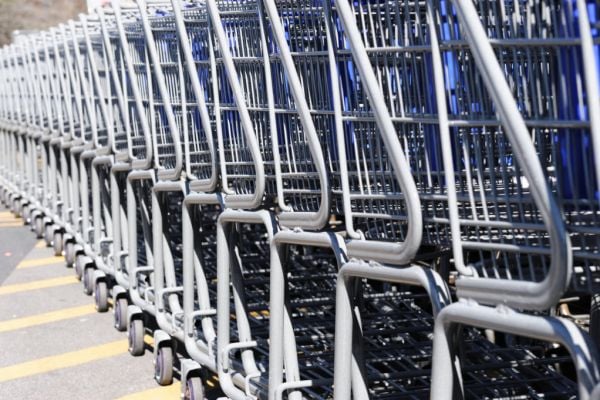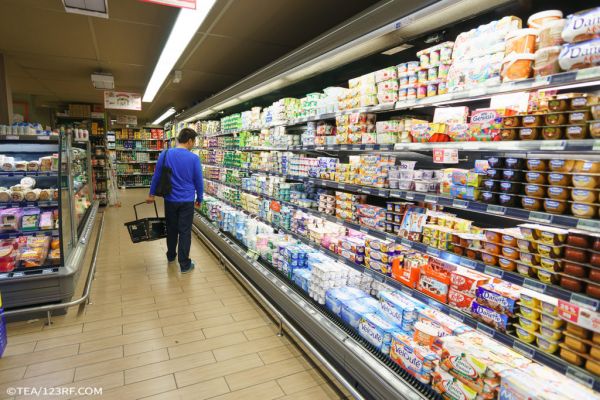UK consumers are flagging, stripping the economy of its most consistent and important support over the past two years.
From a slowdown in spending growth to switching to cheaper brands to save money, the impact of faster inflation on households is clear to see. According to separate reports on Thursday, annual growth in retail sales the quarter through July dropped to 1.8%, the weakest in almost four years, while households are ramping up efforts to save money at the supermarket.
The weakness is a response to inflationary impact of the pound’s decline after Britain voted to leave the European Union. Prices are now rising faster than average wages, and real incomes fell 0.5% in the second quarter, eroding workers’ spending power. Even with unemployment at a four-decade low, the inflation squeeze and concern about Brexit mean consumer confidence has weakened this year.
“Consumers are watching and waiting for inflation to subside and for the post-Brexit situation to become clearer,” said Andrew Sentance, a former Bank of England policy maker who’s now an economic adviser at PwC. “Until there is some relief on these two key issues, subdued growth of retail sales looks set to continue through this year and into 2018.”
Consumer Confidence
The Office for National Statistics said Thursday retail sales rose 0.3% in July, with the better-than-forecast reading due to a surge in food sales. That news was tempered by almost every other category posting a decline, and a downward revision to June data.
Separately, a Nielsen survey published Thursday showed shoppers have increased cost-cutting efforts to the highest proportion in two years. That tallies with BOE Governor Mark Carney’s comments earlier this month that consumers are in the “teeth” of a squeeze on their pockets, which they’re going to have to ride out for the rest of the year.
The tepid consumer performance is being felt by many of the stalwarts of the British high street. Kingfisher, the owner of B&Q home-improvement stores, reported a third straight drop in quarterly sales on Thursday, citing the UK as the main source of disappointment. John Lewis, which owns the Waitrose supermarket chain as well as department stores, has seen sales growth slow so far this year.
While the strain on household budgets is likely to continue for some months, it may not worsen. Inflation held at 2.6% in July and economists expect its peak at the end of the year to be a little lower than previously expected. The economy has felt the damage already, however, with growth this year and next forecast to slow, according to a Bloomberg survey published this week.
“The worst is probably over for the British consumer,” Dan Hanson and Jamie Murray, economists at Bloomberg Intelligence, wrote in a note on Thursday. “Rising inflation made for a torrid start to 2017, but the shock is already fading. While things are looking brighter for households, uncertainty is likely to mean companies remain cautious.”
News by Bloomberg, edited by ESM. Click subscribe to sign up to ESM: The European Supermarket Magazine.














